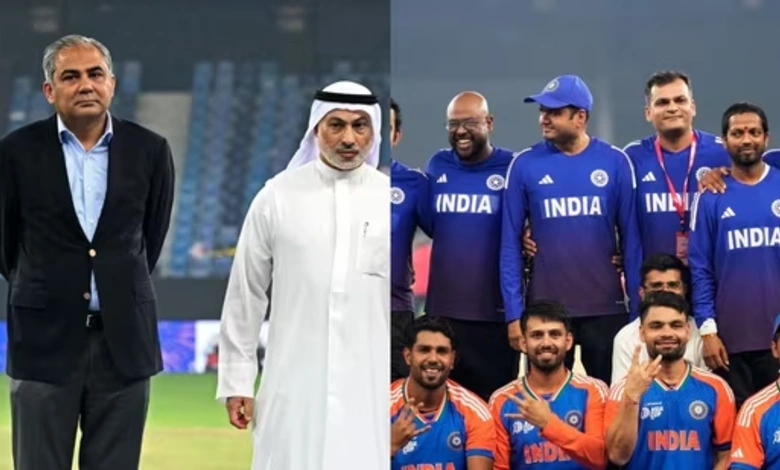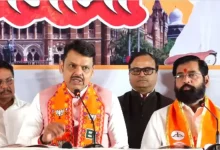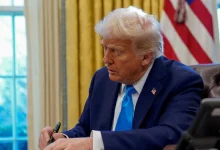
In a move that underscores deepening tensions within Asian cricket’s governing structures, the Board of Control for Cricket in India (BCCI) is preparing to file a formal protest with the International Cricket Council (ICC) against Asian Cricket Council (ACC) chief Mohsin Naqvi. The grievance centers on Naqvi’s recent act of lifting the Asia Cup 2025 trophy in a manner that the BCCI views as a deliberate slight toward Indian cricket stakeholders.
The incident unfolded shortly after the tournament’s conclusion in Dubai, where Pakistan emerged victorious over India in a thrilling final on September 28. As celebrations ensued, Naqvi, who also serves as chairman of the Pakistan Cricket Board (PCB), was seen hoisting the gleaming silverware high above his head during a televised presentation ceremony. Notably absent from the moment was BCCI secretary Devajit Saikia, the designated representative for the runners-up side. Eyewitnesses and broadcast footage captured Naqvi posing solo with the trophy, prompting immediate backlash from Indian officials who interpreted the gesture as a breach of protocol.
Sources close to the BCCI, speaking on condition of anonymity, revealed that the board’s top brass convened an emergency virtual meeting late Saturday to deliberate the episode. “This was not just an oversight; it felt like a calculated provocation,” one senior official told NDTV Sports. The BCCI contends that standard multi-nation tournament etiquette requires shared podium honors for finalists, a practice upheld in events like the ICC Champions Trophy and World Cup. By sidelining Saikia, Naqvi allegedly undermined the spirit of camaraderie that the ACC promotes among its seven member nations.
The protest letter, expected to be dispatched to ICC headquarters in Dubai by Monday, will demand an official inquiry into Naqvi’s conduct and urge stricter guidelines for future continental events. It highlights how such actions erode trust between the BCCI and ACC, particularly amid ongoing disputes over hosting rights and revenue distribution. The BCCI, which contributes over 80% of the ACC’s annual funding through participation fees and broadcasting deals, has long advocated for equitable representation.
Naqvi, a former PCB chairman and influential figure in Pakistani politics, defended his actions in a post-match press conference organized by Geo Super. “The trophy belongs to the champions, and Pakistan earned it proudly. There’s no malice intended,” he stated, emphasizing the historic win as a milestone for South Asian cricket. However, his remarks did little to quell the uproar, with Indian fans flooding social media platforms like X (formerly Twitter) with hashtags such as #BoycottACC and #JusticeForIndianCricket.
This is not the first rift between the BCCI and ACC leadership. Earlier this year, the BCCI boycotted an ACC executive board meeting in Colombo over disagreements on the 2025 schedule, which favored hybrid formats accommodating India’s security concerns. Cricket analysts, including former India pacer Irfan Pathan, weighed in on the controversy via an ESPNcricinfo podcast, calling it “a needless distraction from the beautiful game we all love.” Pathan urged both sides to prioritize dialogue, warning that escalating complaints could jeopardize the Asia Cup’s future viability.
As the dust settles on the 2025 edition—marked by standout performances from Pakistan’s Babar Azam (tournament MVP with 312 runs) and India’s Jasprit Bumrah (15 wickets)—eyes now turn to the ICC’s response. Will the global body mediate to restore harmony, or will this spark a broader realignment in Asian cricket politics? For now, the BCCI’s protest signals a firm stance: no tolerance for perceived disrespect on the continental stage.
The implications extend beyond symbolism. With the ICC’s 2026 calendar looming, including a proposed Asia Cup slot, unresolved acrimony could disrupt bilateral series and sponsorship inflows. Stakeholders from the Emirates Cricket Board, which hosted the event, have remained neutral, issuing a statement via their official website praising the tournament’s success despite logistical challenges.
In the end, this trophy tussle encapsulates the high-stakes interplay of pride, power, and protocol that defines international cricket. As Naqvi’s gesture reverberates, it serves as a reminder that even in victory, the path to unity remains fraught with pitfalls.




